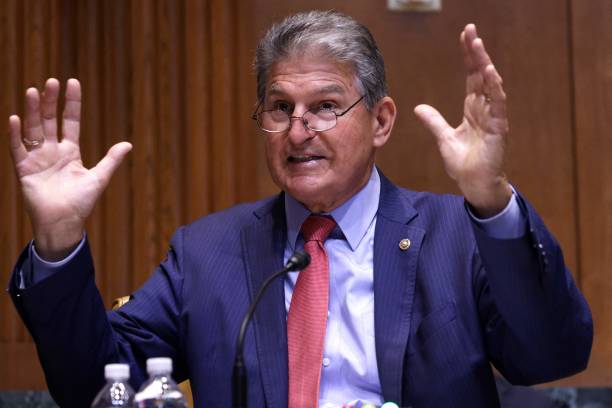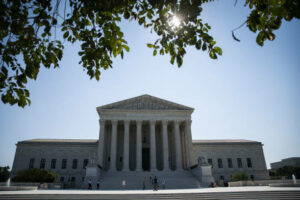This past Sunday, West Virginia Democratic Senator Joe Manchin effectively killed President Joe Biden’s Build Back Better Act by stating he would vote no on the legislation. Manchin made his intentions known during an appearance on Fox News Sunday with host Bret Baier. West Virginia’s Senior Senator cited numerous concerns as to why he could no longer entertain the notion of voting yes. In the interview, Manchin mentioned rising inflation as a concern, highlighting that the bill will worsen the U.S.’s financial standing. Additionally, Senator Manchin stated the bill’s current $1.7 trillion price tag was just too much. After his announcement, critics came out in force against Manchin’s decision.
The Response
After his Sunday declaration (his first direct statement opposing the legislation), the White House and Congressional Democrats unleashed on Manchin. Senator Bernie Sanders of Vermont, who helped craft the original legislation, said Manchin ought to vote no “in front of the whole world”. The White House panned Manchin for allegedly promising to support the legislation and dropping out at the eleventh hour.
Manchin himself could only justify his intentions by talking about what he believes is best for his state. “If I can’t go home and explain to the people of West Virginia, I can’t vote for it,” said Manchin. He continued, “I’ve tried everything humanly possible, I just can’t get there”. With his fiftieth Democratic vote needed, Manchin has effectively torpedoed any hope that Democrats could pass Build Back Better. All fifty Republican Senators are opposed to the legislation, so the White House would have needed Manchin on board to pass their biggest priority.
Without him, it looks like the Biden Administration will need to go back to the drawing board on the legislation. But time is of the essence for Biden and Congressional Democrats. The 2022 midterm elections loom as a possible massive setback for the Administration’s priorities. Republicans will likely make big gains and outside of a miracle, Democrats will likely lose the House of Representatives and possibly even the Senate. The next thirteen months may be the last chance in Biden’s first term to pass transformative legislation.
Manchin’s Rationale
For Manchin, he has expressed sustained skepticism about the bill over the past several months. Many Democrats in the Progressive Caucus as well as “The Squad” predicted as much as far back as the summer. In fact, Squad Progressives Jamaal Bowman (D-NY), Cori Bush (D-MO), Alexandria Ocasio-Cortez (D-NY), Ilhan Omar (D-MN), Ayanna Pressley (D-MA), and Rashida Tlaib (D-MI) all voted no on the Bipartisan Infrastructure Bill because they wanted to see it passed in tandem with the Build Back Better Act. Despite these defections, 13 Republicans voted yes on the bill, and therefore it passed. The Squad, after Manchin’s “no” declaration on Sunday, seems vindicated. “We have been saying this for weeks that this would happen,” Representative Cori Bush said. “Having the Infrastructure Bill and Build Back Better coupled together was the only leverage we had”.
Getting back to the interview and Manchin’s rationale for his decision, one thing is clear. He believes the $1.7 trillion price tag does not accurately represent the bill’s actual cost. Manchin said, “If everything that’s still in the bill today even though they said they cut it down will be paid for in full, you’re in that $4.5 trillion [range].” He cited the Congressional Budget Offices’ recent assessment that Biden’s Build Back Better Act would cost upwards of $4.5 trillion. Additionally, Manchin stated that COVID-19 (specifically the surging Omicron variant) is not yet solved with inflation still hanging over the country as cause to oppose additional spending.
It seems the entire situation may be coming to a head as many just want a vote on the bill. On Sunday alone, Manchin, Sanders, Ocasio-Cortez, and others stated that a vote is the best way for people to see the Senate’s true positions on Build Back Better. Also, a vote could help Biden and Democratic leadership see what adjustments they need to make to pass the bill. While nothing is certain, Manchin has alluded to the fact that other Senate Democrats are wary of the bill’s cost. Perhaps a vote on the matter would shed some light on these individuals’ thinking. This is especially true because any Senator that votes against it would not be risking single-handedly blocking the legislation.
Taking Criticism
In the interview, Baier also asks Manchin his thoughts about the criticism he has received. Some say he opposes the bill specifically because its provisions hurt coal industries that he personally invests in. Manchin responded by saying, “I’ve heard all those things and I understand where they are coming from and basically they are trying to get an agenda they wish to have”. Manchin did in fact found a coal brokerage firm, but any potential conflicts of interest in that area are unproven.
Critics of Manchin have also said his involvement in the coal industry motivates him to oppose bills such as this. This is because it includes climate provisions aimed at slowing the effects of global warming. Manchin countered that as Chairman of the Energy and Natural Resources Committee, he has crafted billions of dollars worth of legislation aimed at creating cleaner and greener fuel alternatives. All of this would presumably harm his family business, but Manchin has not opposed it.
But for Biden’s bill specifically, Manchin has what he believes are credible concerns and therefore can not advance the legislation. So, the most likely scenario for Senate Democrats is a Build Back Better bill that is dead on arrival. Furthermore, outside of crafting a completely new bill or removing such priorities as paid family leave, childcare expenses, and climate provisions, the bill will most likely be stuck in neutral. But as mentioned, Congressional Democrats are working against the clock as they are facing a potential wipeout next year.
The Roundup
In summary, Joe Manchin has held the Build Back Better Act and Senate Democrats hostage for the foreseeable future. His concerns with the bill for his home state of West Virginia, in his mind, outweigh the benefits of Build Back Better. In addition, the blowback he continues to receive is not just cause to support legislation he believes is too expansive. Plus, all of this precedes the virus as a priority for Manchin. Whether or not Democrats’ inability to pass this legislation ultimately hurts their hopes next year remains up in the air. However, one thing is for sure. Manchin has become one of the most polarizing figures in politics and perhaps the most powerful lawmaker in the country.
Main Photo from Getty.







